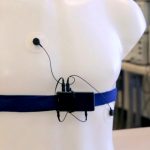 Wearable technologies have a tremendous amount of potential for delivering health improvements. Much of this potential rests in their ability to both collect large volumes of data on us, and then use AI to spot possible issues that we can then seek to rectify. These projects move beyond early wearable devices that simply recorded and relayed health information.
Wearable technologies have a tremendous amount of potential for delivering health improvements. Much of this potential rests in their ability to both collect large volumes of data on us, and then use AI to spot possible issues that we can then seek to rectify. These projects move beyond early wearable devices that simply recorded and relayed health information.
A new project is aiming to make such work even more powerful. The venture, called MD2K, aims to make it easier for companies to build both the hardware and software to achieve such results.
Making wearable data fit for research
Whilst there is a growing volume of data generated by wearable devices, there is a considerable challenge in converting this into something that can be used by researchers. The data may be limited, or quite sporadic in its measurement, for instance.
MD2K attempts to overcome this by developing wearable devices that are able to provide researchers with raw and reliable data for a solid 24 hour period.
One such device is called MotionSense, and is a smart watch that’s designed to understand the arm movements of the wearer. It can also detect variability in heart rate. Or you have AutoSense, a ECG device fitted inside a chestband.
The devices stream data via WiFi where the MD2K platform then translates the data into biomarkers that alert researchers to the health of the user, and any risk factors they face.
By making the work open source, the team hope that companies such as Apple and Samsung will begin to use their designs as the basis for their own wearable devices. They also believe that the richer nature of the sensors provided to manufacturers allows for a more complex array of data to be collected, and thus more insightful findings to be derived from it. For instance, it might allow for heart rate variability to be measured rather than simply our pulse.
Complex diagnoses
This level of data allows for more sophisticated diagnoses to be made. For instance, by combining heart-rate variability with respiratory data, it’s possible to gauge someone’s stress levels. The researchers believe that this might allow developers to build a stress biomarker, and certainly to do so with more accuracy than current models that claim to do so.
With 12 leading research universities backing the project, it’s perhaps no surprise that many of them are already using the MD2K wearables as part of their research. For instance, researchers are using the devices to explore why smokers relapse and to further examine congestive heart failure. The aim with these projects is to be capable of intervening earlier to avoid much worse problems later on.
Suffice to say, it’s obviously still early days for wearables as a source of both research data and subsequent interventions, and as such the sector is still largely untested. The potential remains significant however, and projects like MD2K will undoubtedly help to drive improvements. It’s a project to watch with great interest.